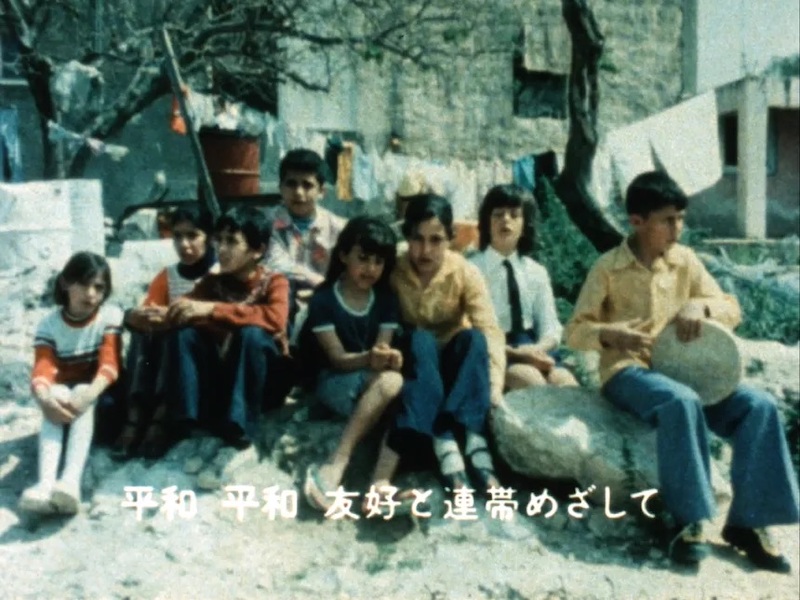
The growing struggle for Palestinian self-determination between 1960 and 1980 was supported by radical left-wing movements worldwide, also in Japan. This is illustrated by a collection of 16mm films by militant filmmakers from various countries, which were dubbed and screened in Japan. Their Japanese audiences felt oppressed by the US after World War II, and not only sympathized but also identified with the Palestinians.
Stylistically, the films vary widely. They includes interviews with PLO leaders, documentary impressions of life in refugee camps, experimental films, and instructional films for tourism purposes. Mohanad Yaqubi has drawn on this material to create a film that might be seen as a conclusion or epilogue. He shows how two very different peoples can feel connected through images, and also raises questions. Where is the line between support and propaganda? And to what extent can a local struggle be translated internationally?
EN
Filmmaker Magazine: R21 AKA Restoring Solidarity began as part of the process of cataloging a collection of 20 archival films, then making a trailer for each one, before ultimately deciding that they should be combined into a full film. How did that process develop?
Mohanad Yaqubi: The theme of my research is imperfect archives, which is inspired by Julio Garcia Espinosa’s text “For An Imperfect Cinema.” For him, films were all about experimenting, not looking for perfection. Rather than follow a certain canon, art school or film school, he argues for using an aesthetic that reflects the people’s will. I believe that “imperfect cinema” has to be archived in the same way. The Tokyo Reels are one example of an “imperfect archive.” We’re dealing with an archive of a revolution that never succeeded. [Revolutions] that did succeed already have an archive—like the Algerian revolution, which started documenting itself after 1962.
What does archiving mean, at the end of the day? It’s telling history and forming a narrative. You rearrange history according to your ideology. Cuba is an example; Guinea, too. But with the Palestinians, these films are part of an imperfect archive that was also transnational. The idea was to take these 20 films and make an expanded inventory. An imperfect archive is not framed: you can add to it. What does it mean to add to a collection of 20 films? Should we make a transcript, take stills, make subtitles? I was especially aware that for people in struggle, who don’t have their own archive, any extra material will become important. Being able to produce an archive is a point of vitality. So, we did the transcript first, then subtitling and scanning. Then we decided to make a trailer for each film, which we put together in one timeline. We added the titles and thought, “That’s going to be an art piece somehow.” So Rami [El Nihawi], the editor, said, “How should we organize the timeline?” I said, “Let’s do it chronologically by year of production.” After adding the sixth film, we watched it through again and felt that there was someone else speaking. The collection itself has a voice, which comes from the people behind it. Those people clearly wanted to preserve these films, but didn’t present them as far as we know, and there’s nothing written about them. We wanted to track the voice of this solidarity movement and polish it. So, the film created itself – we just helped.
Watching chronologically, we noticed the changes in the film material, like the move from black and white to color, or the atmosphere around the political movements. Films that are made in 1967 talk about different things than those made in 1973 or 1982. No one before us had looked at the collection as a collection. Only sovereign people can do this kind of reproduction of archives, which intrigued the curators of documenta, but ended up annoying others. It was like, “OK, we’re in Germany: they have a certain way of forming a historical narrative.” We came in with a different narrative through this archive, one that challenged the normal representation of the “conflict” in the Middle East.
Filmmaker Magazine in conversation with Mohanad Yaqubi1
- 1Sophia Haid, Finn Jubak & Andrei Vilcov, ““A Militant Archiving Process”: Mohanad Yaqubi on R21 AKA Restoring Solidarity,” Filmmaker Magazine, 28 February 2023.

